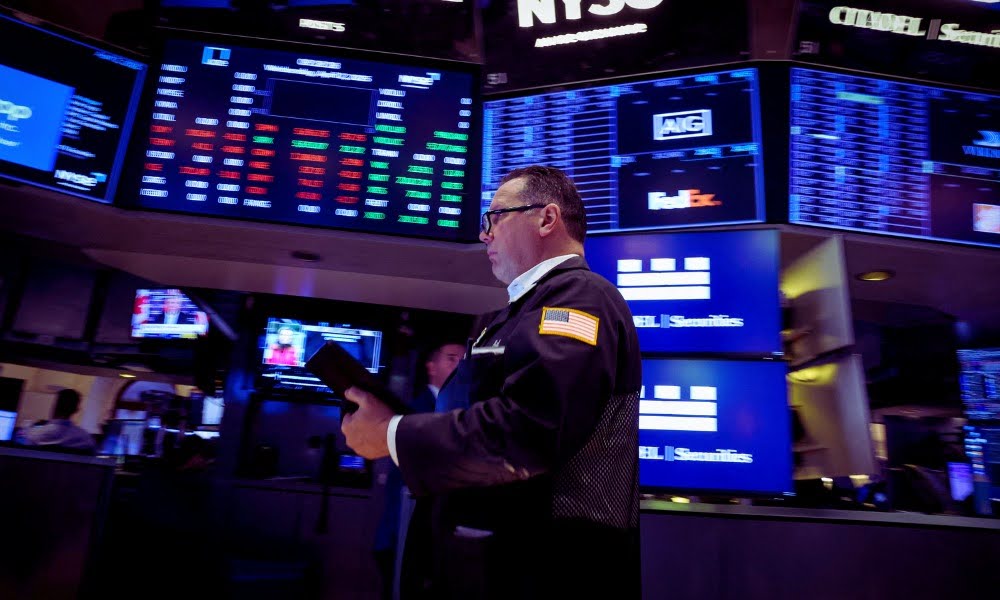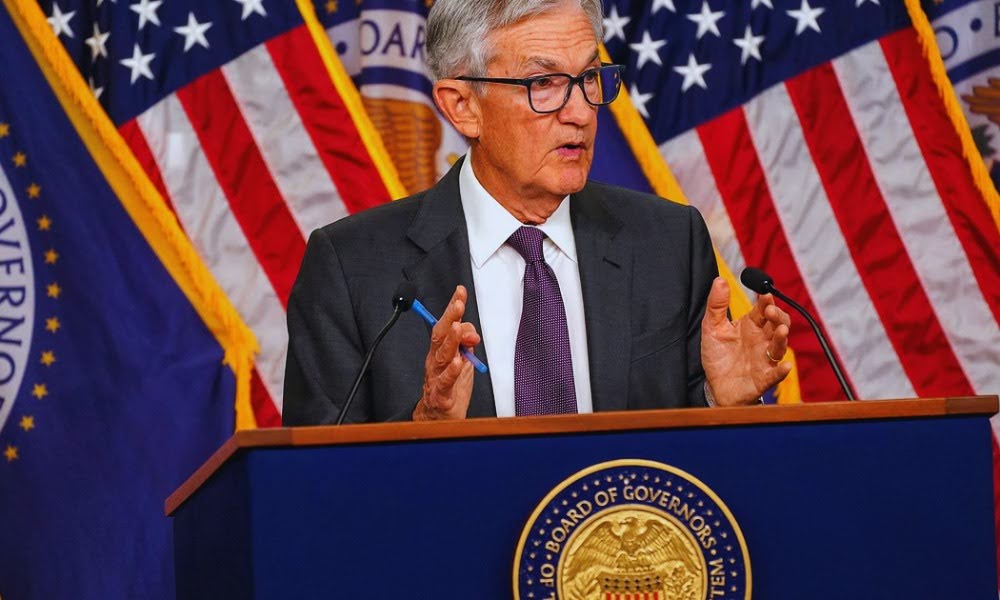Wall Street Slips as Tariff Tensions and Economic Fears Rattle Investors

The S&P 500 and Dow Jones Industrial Average closed in the red on Monday, capping off a volatile trading session dominated by investor concerns over a potential economic downturn and escalating inflation.
These anxieties were heightened by President Donald Trump’s unwavering position on tariffs. Trump’s recent warning about the possibility of raising tariffs on China further intensified trade tensions.
Trump’s Tariff Threats Deepen Market Woes
Wall Street has been rattled since Trump’s sweeping announcement last Wednesday regarding tariffs on all U.S. imports.
The significant hike in levies on several of America’s key trading partners sparked widespread alarm among investors, who fear serious consequences for global trade and economic growth.
Rick Meckler, a partner at Cherry Lane Investments, voiced skepticism about the administration’s strategy, saying, “The underlying problem of the market is that the administration’s approach to trade imbalances is to try a cure that’s worse than the disease.”
He further remarked, “It’s clear that investors favor either a pause or a different look at how to do this.”
Monday Market Performance
On Monday, the Dow Jones Industrial Average fell by 349.26 points, or 0.91%, settling at 37,965.60. The S&P 500 dipped by 11.83 points, or 0.23%, closing at 5,062.25. Meanwhile, the Nasdaq Composite edged higher, gaining 15.48 points, or 0.10%, to end at 15,603.26.
Last week’s announcement of tariffs had already led to a 10.5% plunge in the S&P 500, wiping out approximately $5 trillion in market value — the steepest two-day decline since March 2020.
The Dow officially entered correction territory, dropping over 10% from its December high. The Nasdaq confirmed its bear market status, having fallen 20% from its peak.
Temporary Optimism, Quickly Reversed
Early on Monday, the S&P 500 briefly rebounded after a news report suggested Trump might delay tariff implementation by 90 days. However, this rally was short-lived. A prompt denial from White House officials sent the markets falling again.
Meckler commented on the session’s unpredictability, stating, “The market’s wild swings left investors a little bit concerned. If facts start to change, you could see a very rapid rise to this market. It’s leading to back-and-forth movements of rallies that are being sold and drops in the market where people are covering shorts or trying to find a place to buy.”
Sector and Stock Highlights
Among the S&P 500’s 11 primary sectors, real estate suffered the sharpest loss, dropping 2.4%. On the upside, communications services led with a 1% gain, while technology followed with a 0.3% increase.
In individual stocks, Apple Inc. slid 3.7%, and Tesla Inc. dropped 2.6%, becoming the session’s largest losers. In contrast, Nvidia climbed 3%, and Amazon.com gained 2.5%, offering some support to the broader market.
Investors Eye Economic Signals
Traders are keeping a close watch on upcoming speeches by Federal Reserve officials and incoming economic indicators such as consumer price data. These will offer insights into the economy’s health and potential signs of a recession.
Market Breadth and Record Volume
On the New York Stock Exchange, declining stocks significantly outpaced advancing ones by a margin of 4.45-to-1. There were 42 new highs and 2,036 new lows. On the Nasdaq, 1,447 stocks advanced while 3,070 declined, creating a 2.12-to-1 ratio of losers to gainers.
Trading volume remained extremely high across U.S. exchanges. A staggering 29.13 billion shares changed hands, far above the 20-day average of 17.13 billion.
Friday’s session alone saw 26.79 billion shares traded, surpassing the previous record of 24.48 billion set on January 27, 2021.
Outlook: More Volatility Ahead
Given the prevailing uncertainty around trade policies and economic conditions, analysts expect market turbulence to continue.
Investors will likely remain on edge as they await clearer direction from policymakers and economic data in the days ahead.








